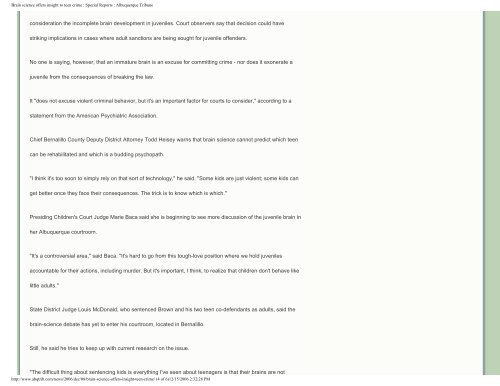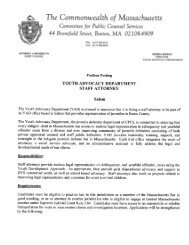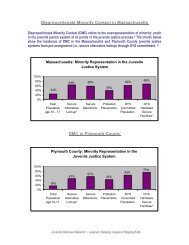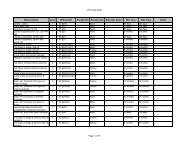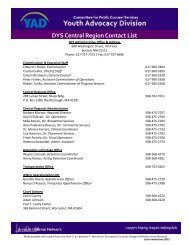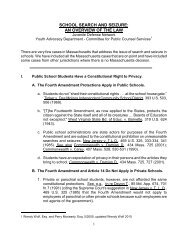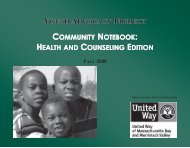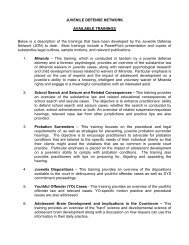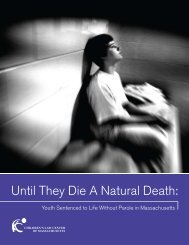States rethink 'adult time for adult crime' - the Youth Advocacy Division
States rethink 'adult time for adult crime' - the Youth Advocacy Division
States rethink 'adult time for adult crime' - the Youth Advocacy Division
You also want an ePaper? Increase the reach of your titles
YUMPU automatically turns print PDFs into web optimized ePapers that Google loves.
Brain science offers insight to teen crime : Special Reports : Albuquerque Tribune<br />
consideration <strong>the</strong> incomplete brain development in juveniles. Court observers say that decision could have<br />
striking implications in cases where <strong>adult</strong> sanctions are being sought <strong>for</strong> juvenile offenders.<br />
No one is saying, however, that an immature brain is an excuse <strong>for</strong> committing crime - nor does it exonerate a<br />
juvenile from <strong>the</strong> consequences of breaking <strong>the</strong> law.<br />
It "does not excuse violent criminal behavior, but it's an important factor <strong>for</strong> courts to consider," according to a<br />
statement from <strong>the</strong> American Psychiatric Association.<br />
Chief Bernalillo County Deputy District Attorney Todd Heisey warns that brain science cannot predict which teen<br />
can be rehabilitated and which is a budding psychopath.<br />
"I think it's too soon to simply rely on that sort of technology," he said. "Some kids are just violent; some kids can<br />
get better once <strong>the</strong>y face <strong>the</strong>ir consequences. The trick is to know which is which."<br />
Presiding Children's Court Judge Marie Baca said she is beginning to see more discussion of <strong>the</strong> juvenile brain in<br />
her Albuquerque courtroom.<br />
"It's a controversial area," said Baca. "It's hard to go from this tough-love position where we hold juveniles<br />
accountable <strong>for</strong> <strong>the</strong>ir actions, including murder. But it's important, I think, to realize that children don't behave like<br />
little <strong>adult</strong>s."<br />
State District Judge Louis McDonald, who sentenced Brown and his two teen co-defendants as <strong>adult</strong>s, said <strong>the</strong><br />
brain-science debate has yet to enter his courtroom, located in Bernalillo.<br />
Still, he said he tries to keep up with current research on <strong>the</strong> issue.<br />
"The difficult thing about sentencing kids is everything I've seen about teenagers is that <strong>the</strong>ir brains are not<br />
http://www.abqtrib.com/news/2006/dec/08/brain-science-offers-insight-teen-crime/ (4 of 6)12/15/2006 2:32:28 PM


